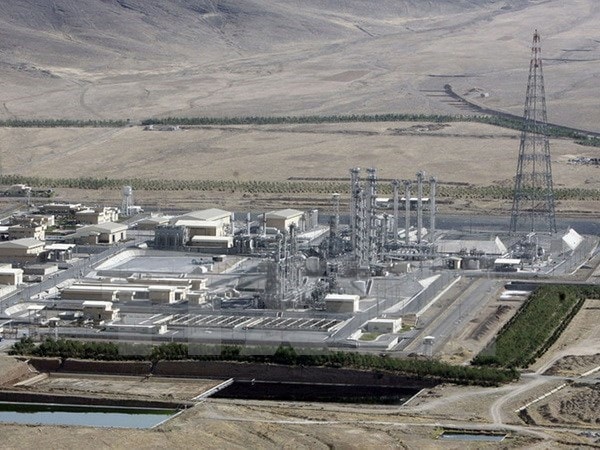Iran's Deputy Foreign Minister: US determined to withdraw from nuclear deal
Iran's Deputy Foreign Minister Abbas Araghchi said the US dismissal of Secretary of State Rex Tillerson showed Washington's "determination" to withdraw from the Iran nuclear deal.
On March 14, Iranian Deputy Foreign Minister Abbas Araghchi said that the US dismissal of Secretary of State Rex Tillerson showed Washington's "determination" to withdraw from the Iran nuclear deal.
Iran's ISNA news agency quoted Mr. Araghchi as saying that the personnel changes at the US State Department were aimed at preparing the country to withdraw from the nuclear agreement signed in July 2015 between Tehran and the P5+1 group (including the five permanent members of the United Nations Security Council and Germany). Or at least this was one of the motives behind the decision to replace Mr. Tillerson.
Meanwhile, speaking to the press, Iranian Foreign Ministry spokesman Bahram Qassemi said that changes in US President Donald Trump's cabinet are not new and this is an internal US matter. What is important to Iran is US policy on global issues as well as in relations with Tehran.
On March 13, President Trump suddenly announced on Twitter his decision to remove Mr. Tillerson from the position of US Secretary of State and nominate Director of the US Central Intelligence Agency (CIA) Mike Pompeo to this position.
The White House chief did not disclose the reason for the personnel change. However, a White House official said this was to prepare for upcoming negotiations between the US and North Korea as well as trade negotiations with many partners.
President Trump cited disagreements over the Iran nuclear deal as one of the reasons he fired Secretary of State Rex Tillerson. The US leader wanted to withdraw from the deal, but Secretary Tillerson "had other ideas."
Meanwhile, Mr. Pompeo has repeatedly expressed a tougher stance than Mr. Tillerson regarding Iran as well as the nuclear deal called the Joint Comprehensive Plan of Action (JCPOA).
The JCPOA was signed by Iran and the P5+1 group in July 2015. Under this agreement, Tehran limited its uranium enrichment activities in exchange for the lifting of international sanctions.
However, last year, President Trump announced that he would not recognize Iran's compliance with the nuclear deal. In January, Trump gave US lawmakers and European allies 120 days to find a "fix" for the content or the US would withdraw from the agreement.
President Trump is concerned that parts of the JCPOA will expire in 2026 without addressing Iran's missile program and Tehran's growing influence in the region.
If the US withdraws, the deal will collapse as Tehran also refuses to renegotiate as requested by Washington./.

